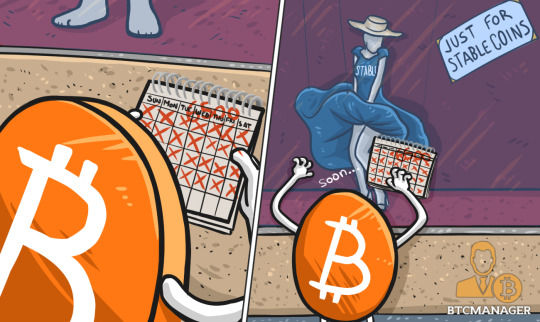#pigeoncoining
Text
B33 < look out- its COOL CAT HOUR + · 。。。




🎧 '·. BROKENANGELIC ✧‧₊
⊹ a gender identity that is related to broken angels, being broken and an angel, being an angelic broken thing or being an angel with broken wings !!

name ✧‧₊ broken + angel
color ✧‧₊ yellow is often associated with angels, the pop of red is supposed to be slightly unnerving or off!
🔊 ، ࣪ ⊹ ֶ coined by PIGEON. ( •͈ᴗ⁃͈)
( coined for day 1 of @a-quilted-milky-way 's coining event! )
#coining#gender coining#coining event#brokenangelic#angel gender#mogai#xenogender#alterhumanity#pigeoncoining
134 notes
·
View notes
Text
Pigeoncoin (PGN) Tumbles 0.33%, Lags Behind Crypto Market
Keep Up With Crypto in Just Minutes -
Cut through the fluff and noise, get your crypto news in concise Key Bullet Points
#cryptonews #nft #ether #altcoin #web3 #crypto #bitcoin #blockchain #cryptocurrency #polygon #binance #metaverse #defi #fintech #dao
-Pigeoncoin is a cryptocurrency that has been relatively average in terms of volatility when compared to other cryptocurrencies.-So far Friday, the crypto has lost 33% to $0.00002527806952.-InvestorsObserver is giving Pigeoncoin a 73 Volatility Rank, which means it is a moderately volatile coin.

View On WordPress
0 notes
Text
Bitcoin Remains Firm Around $6,500 Mark for Fourth Consecutive Week: BTCManager’s Week in Review
Bitcoin Remains Firm Around $6,500 Mark for Fourth Consecutive Week: BTCManager’s Week in Review

The price of bitcoin remained stable around the $6,500 mark through the week to close effectively unchanged versus last week’s close. This marks the fourth consecutive week that bitcoin has found a footing around the $6,500 level, which has prompted several bitcoin community members to refer to b...
https://btcmanager.com/bitcoin-remains-around-6500-mark-btcmanager/?utm_source=Tumblr&utm_medium=socialpush&utm_campaign=SNAP
0 notes
Text
Crypto Startups Forked Out $878,000 To White Hats In 2018
Bitcoin may have been dubbed the “world’s most secure transaction settlement layer” by Anthony Pompliano, but the industry surrounding the protocol may not be all too secure. Case in point, crypto startups have forked out over $878,000 in bounty to white hat hackers in 2018, specifically for solving bugs that slipped under the radar.
Crypto Startups Awarded $878,000 To “Goody Two Shoes” Hackers
The Next Web’s Hard Fork column recently reported that over the course of 2018, blockchain firms awarded $878,504 to goody too shoes hackers for rectifying bugs. Block.one, the company behind the crypto juggernaut in EOS, forked out upwards of 60% of the aforementioned sum. Considering that the startup raked in an approximated $4 billion for its EOS token offering, one of the most hyped cryptocurrencies of all-time, it makes sense why Block.one awarded $534,500 to white hats.
Interestingly Coinbase, the seemingly unhackable $8 billion upstart, comes in behind Block.one with $290,381 in paid bounties. But, HackerOne, the cybersecurity platform that compiled the data, didn’t divulge how much of that sum was a result of 2018 bugs, as Coinbase purportedly began its disclosure program in 2014. Justin Sun-headed Tron, which recently surpassed a number of pertinent milestones, has found itself behind Coinbase, allowing white hats to score $76,200.
Yet these quintuple and sextuple figures are edge cases, as a HackerOne spokesperson told Hard Fork that “the average bounty [paid] for blockchain companies in 2018 was $1,490, that is higher than the Q4 platform average of around $900.”
Still Vulnerable
While many crypto projects talk a big game, the bottom line is that many blockchains and cryptocurrency-friendly startups remain vulnerable. As reported by NewsBTC in early-August, Altex, a lesser-known crypto asset exchange, saw its ARQ stash get looted. The platform claimed that it “lost a big amount,” specifically due to a bug that hails from the Monero codebase.
Just two months later, Pigeoncoin (PGN) fell victim to an odd inflation bug, CVE-2018-17144, that allowed a bad actor to whip up 235 million PGN within a day’s time. Interestingly, the bugged line of code comes from the Bitcoin protocol. The issue has since been patched by Bitcoin Core (the software) developers, but this event still shocked consumers en-masse.
Ground-breaking bugs aren’t limited to the small-cap cryptocurrencies. In July, SlowMist, a Chinese cybersecurity firm, claimed that an anonymous user managed to double spend 694 Tether (USDT). According to SlowMist, a transactor was able to gain credit for 694 USDT on an exchange without sending the funds. Upon digging, it was discovered that the issue was the fault of the victimized exchange. Dacoinminister, a founder of the Omni Protocol, which Tether is based on, wrote:
“It appears that what happened here is that an exchange wasn’t checking the valid flag on transactions. They accepted a transaction with valid=false (which they should not have), and then the second “double spend” transaction had valid=true, which they also accepted.”
Regardless of where this problem originated from, the three aforementioned cases only accentuate the fact that this industry remains nascent. So, this industry’s developers still have a ways to go until crypto is spick and span, and ready for worldwide consumption.
Featured Image from Shutterstock
The post Crypto Startups Forked Out $878,000 To White Hats In 2018 appeared first on NewsBTC.
from Cryptocracken WP http://bit.ly/2RkooiJ
via IFTTT
0 notes
Text
Crypto Startups Forked Out $878,000 To White Hats In 2018
Bitcoin may have been dubbed the “world’s most secure transaction settlement layer” by Anthony Pompliano, but the industry surrounding the protocol may not be all too secure. Case in point, crypto startups have forked out over $878,000 in bounty to white hat hackers in 2018, specifically for solving bugs that slipped under the radar.
Crypto Startups Awarded $878,000 To “Goody Two Shoes” Hackers
The Next Web’s Hard Fork column recently reported that over the course of 2018, blockchain firms awarded $878,504 to goody too shoes hackers for rectifying bugs. Block.one, the company behind the crypto juggernaut in EOS, forked out upwards of 60% of the aforementioned sum. Considering that the startup raked in an approximated $4 billion for its EOS token offering, one of the most hyped cryptocurrencies of all-time, it makes sense why Block.one awarded $534,500 to white hats.
Interestingly Coinbase, the seemingly unhackable $8 billion upstart, comes in behind Block.one with $290,381 in paid bounties. But, HackerOne, the cybersecurity platform that compiled the data, didn’t divulge how much of that sum was a result of 2018 bugs, as Coinbase purportedly began its disclosure program in 2014. Justin Sun-headed Tron, which recently surpassed a number of pertinent milestones, has found itself behind Coinbase, allowing white hats to score $76,200.
Yet these quintuple and sextuple figures are edge cases, as a HackerOne spokesperson told Hard Fork that “the average bounty [paid] for blockchain companies in 2018 was $1,490, that is higher than the Q4 platform average of around $900.”
Still Vulnerable
While many crypto projects talk a big game, the bottom line is that many blockchains and cryptocurrency-friendly startups remain vulnerable. As reported by NewsBTC in early-August, Altex, a lesser-known crypto asset exchange, saw its ARQ stash get looted. The platform claimed that it “lost a big amount,” specifically due to a bug that hails from the Monero codebase.
Just two months later, Pigeoncoin (PGN) fell victim to an odd inflation bug, CVE-2018-17144, that allowed a bad actor to whip up 235 million PGN within a day’s time. Interestingly, the bugged line of code comes from the Bitcoin protocol. The issue has since been patched by Bitcoin Core (the software) developers, but this event still shocked consumers en-masse.
Ground-breaking bugs aren’t limited to the small-cap cryptocurrencies. In July, SlowMist, a Chinese cybersecurity firm, claimed that an anonymous user managed to double spend 694 Tether (USDT). According to SlowMist, a transactor was able to gain credit for 694 USDT on an exchange without sending the funds. Upon digging, it was discovered that the issue was the fault of the victimized exchange. Dacoinminister, a founder of the Omni Protocol, which Tether is based on, wrote:
“It appears that what happened here is that an exchange wasn’t checking the valid flag on transactions. They accepted a transaction with valid=false (which they should not have), and then the second “double spend” transaction had valid=true, which they also accepted.”
Regardless of where this problem originated from, the three aforementioned cases only accentuate the fact that this industry remains nascent. So, this industry’s developers still have a ways to go until crypto is spick and span, and ready for worldwide consumption.
Featured Image from Shutterstock
The post Crypto Startups Forked Out $878,000 To White Hats In 2018 appeared first on NewsBTC.
from Cryptocracken Tumblr http://bit.ly/2RkooiJ
via IFTTT
0 notes
Text
Crypto Startups Forked Out $878,000 To White Hats In 2018
Bitcoin may have been dubbed the “world’s most secure transaction settlement layer” by Anthony Pompliano, but the industry surrounding the protocol may not be all too secure. Case in point, crypto startups have forked out over $878,000 in bounty to white hat hackers in 2018, specifically for solving bugs that slipped under the radar.
Crypto Startups Awarded $878,000 To “Goody Two Shoes” Hackers
The Next Web’s Hard Fork column recently reported that over the course of 2018, blockchain firms awarded $878,504 to goody too shoes hackers for rectifying bugs. Block.one, the company behind the crypto juggernaut in EOS, forked out upwards of 60% of the aforementioned sum. Considering that the startup raked in an approximated $4 billion for its EOS token offering, one of the most hyped cryptocurrencies of all-time, it makes sense why Block.one awarded $534,500 to white hats.
Interestingly Coinbase, the seemingly unhackable $8 billion upstart, comes in behind Block.one with $290,381 in paid bounties. But, HackerOne, the cybersecurity platform that compiled the data, didn’t divulge how much of that sum was a result of 2018 bugs, as Coinbase purportedly began its disclosure program in 2014. Justin Sun-headed Tron, which recently surpassed a number of pertinent milestones, has found itself behind Coinbase, allowing white hats to score $76,200.
Yet these quintuple and sextuple figures are edge cases, as a HackerOne spokesperson told Hard Fork that “the average bounty [paid] for blockchain companies in 2018 was $1,490, that is higher than the Q4 platform average of around $900.”
Still Vulnerable
While many crypto projects talk a big game, the bottom line is that many blockchains and cryptocurrency-friendly startups remain vulnerable. As reported by NewsBTC in early-August, Altex, a lesser-known crypto asset exchange, saw its ARQ stash get looted. The platform claimed that it “lost a big amount,” specifically due to a bug that hails from the Monero codebase.
Just two months later, Pigeoncoin (PGN) fell victim to an odd inflation bug, CVE-2018-17144, that allowed a bad actor to whip up 235 million PGN within a day’s time. Interestingly, the bugged line of code comes from the Bitcoin protocol. The issue has since been patched by Bitcoin Core (the software) developers, but this event still shocked consumers en-masse.
Ground-breaking bugs aren’t limited to the small-cap cryptocurrencies. In July, SlowMist, a Chinese cybersecurity firm, claimed that an anonymous user managed to double spend 694 Tether (USDT). According to SlowMist, a transactor was able to gain credit for 694 USDT on an exchange without sending the funds. Upon digging, it was discovered that the issue was the fault of the victimized exchange. Dacoinminister, a founder of the Omni Protocol, which Tether is based on, wrote:
“It appears that what happened here is that an exchange wasn’t checking the valid flag on transactions. They accepted a transaction with valid=false (which they should not have), and then the second “double spend” transaction had valid=true, which they also accepted.”
Regardless of where this problem originated from, the three aforementioned cases only accentuate the fact that this industry remains nascent. So, this industry’s developers still have a ways to go until crypto is spick and span, and ready for worldwide consumption.
Featured Image from Shutterstock
The post Crypto Startups Forked Out $878,000 To White Hats In 2018 appeared first on NewsBTC.
from CryptoCracken SMFeed http://bit.ly/2RkooiJ
via IFTTT
0 notes
Text
Pigeoncoin (PGN) Hacked Due to Bitcoin Protocol Bug, Copycat Coins in Danger?
Pigeoncoin (PGN) Hacked Due to Bitcoin Protocol Bug, Copycat Coins in Danger?
A hacker stole 235 million PGN tokens through a Bitcoin protocol bug. The attack on the cryptocurrency's source code rendered the equivalent to …
social experiment by Livio Acerbo #greengroundit
View On WordPress
0 notes
Text
Hackers exploit Bitcoin inflation bug to print 235M fake Pigeoncoins
Hackers exploit Bitcoin inflation bug to print 235M fake Pigeoncoins
The collateral damage from Bitcoin’s epic inflation bug continues to spread. The developers of small-cap cryptocurrency Pigeoncoin have confirmed hackers successfully exploited the vulnerability to print 235 million Pigeoncoins, worth around $15,000.
Attackers exploited remnants of bad Bitcoin BTC code to work around Pigeoncoin’s ‘strict’ 21 billion supply, CoinDesk reports.
This represents…
View On WordPress
0 notes
Text
B33 < look out- its COOL CAT HOUR + · 。。。















🎧 '·. DREAM[ASPECT] ✧‧₊
⊹ a gender related to being an [ASPECT] of dreams, an [ASPECT] in your dreams, or being a dreamy [ASPECT] !!
dreammage | dreamseer
dreammaid | dreamsylph
dreamprince | dreambard
dreamknight | dreampage
dreamlord | dreammuse
dreamheir | dreamwitch
dreamthief | dreamrouge

🔊 ، ࣪ ⊹ ֶ coined by PIGEON. ( •͈ᴗ⁃͈)
( coined for day 4 of @a-quilted-milky-way 's coining event! )
34 notes
·
View notes
Text
The Daily: Bitcoin Burns Critics, Bill Clinton Does Blockchain
There’s never a dull day in crypto. It’s soap opera for geeks who are too busy to do soap opera. Whether you’re a BUIDLER or HODLER, The Daily delivers the latest drama from the cryptocurrency world in less time than it takes to solve the captcha and log in to your favorite exchange. Today’s edition details a hit piece on Bitcoin that gets everything wrong and Bill Clinton’s foray into the realm of blockchain.
Also read: Chrome Extensions Will Soon Protect Against Miners and Hackers
Bill Clinton Steps Out of Retirement and Into the World of Blockchain
Crypto Twitter was watching closely and meming intensely when former US President Bill Clinton stepped up to make the keynote address at Ripple’s Swell conference yesterday. His remarks read in places as a blockchain-by-numbers monologue penned by a scriptwriter who wanted to please everyone and offend no one: “The more you develop new technologies like blockchain,” ruminated the ex-President, “AI technologies, robotic technologies…the more the disparity of access is going to be felt.”
He also implored: “You can’t apply an old regulatory regime to a new technology. You end up killing the goose that laid the golden egg,” which could be a veiled plea to the SEC not to prosecute Ripple for selling an unregistered security, or simply some well-meaning advice to overzealous US regulators seeking to make their mark on the rising cryptoconomy. Ripple CEO Brad Garlinghouse’s speech at Swell was less vanilla, including an attack on BTC on the basis that “XRP is about 1,000 times faster than a bitcoin transaction and about 1,000 times less expensive than a bitcoin transaction.”
Mr Garlinghouse was being more than a little disingenuous there, since anyone can create a more centralized altcoin and boast that is faster and cheaper than bitcoin, but his comments were well received, at least, by holders of his company’s ripple cryptocurrency.
Bitcoin Core Bug Spreads Its Wings
The recently discovered bug that threatened bitcoin core has now been exploited…on an entirely different network. Because many cryptocurrencies are little more than bitcoin clones, their developers may have unwittingly imported the same error that had lain undiscovered in BTC since 2016 up until last month. An obscure cryptocurrency called Pigeoncoin was double spent using the same CVE-2018-17144 exploit that threatened bitcoin core. 235 million pigeoncoins were fraudulently created, but their value came to a nominal $15,000. Nevertheless, the feat demonstrated the need for other bitcoin copycats to patch their code, as the likes of litecoin and bitcoin gold now have. The latter, having already fallen prey to a 51% attack this year, could do without another double spend controversy.
Writer Takes Aim at Bitcoin, Fails
As we recently reported, Bitcoin is facing a flurry of shameless 10-year anniversary cash-ins. While its official birthday is penciled in as January 3rd, the day Satoshi mined the genesis block, a smaller birthday will fall on October 31 2018, the tenth anniversary of the Bitcoin whitepaper being published. One writer has attempted to capitalize on the milestone by publishing a hit piece entitled Bitcoin: 10 Years of Smoke and Mirrors.
Some of its more amusing takes include her assertion that Bitcoin “is the go-to currency of criminals and a way for cybercrooks to wash their money.” That will be the US dollar actually, which began life in 1792. The author then attempts to pour scorn on Bitcoin’s achievements to date by observing that “Ten years after PayPal launched, it was operating in 190 countries and had 60 million users…Ten years after Amazon launched, it was nearing 70 million users and had just launched Amazon Prime.”
The beauty of Bitcoin is that it is opt-in money. It has no shareholders to placate, no daily active user threshold to meet and no marketing budget to account for. It is the antithesis of Paypal and Amazon and cannot be measured using the yardsticks that the inflationary and debt-based financial system uses to determine success. If there’s any smoke, that’s because Bitcoin is an incendiary device that will burn those too dumb or slow to grasp the revolution that’s materializing before their eyes. In the words of Satoshi, “If you don’t believe me or don’t get it, I don’t have time to try to convince you, sorry.”
youtube
What are your thoughts on today’s news tidbits as featured in The Daily? Let us know in the comments section below.
Images courtesy of Shutterstock.
Need to calculate your bitcoin holdings? Check our tools section.
The post The Daily: Bitcoin Burns Critics, Bill Clinton Does Blockchain appeared first on Bitcoin News.
READ MORE http://bit.ly/2Izm94h
#cryptocurrency#cryptocurrency news#bitcoin#cryptocurrency market#crypto#blockchain#best cryptocurren
0 notes
Text
比特幣核心"漏洞"正在影響拷背其代碼的加密貨幣
比特幣核心”漏洞”正在影響拷背其代碼的加密貨幣
[ls_content_block id=”23798″] 報導說,最近在比特幣中修補的臭名昭著的漏洞 (bug) 現在影響了另一個使用比特幣代碼的加密貨幣。最近的受害者是Pigeoncoin,一種較小的硬幣,網絡足夠小,可以很容易被攻擊。
這是一部正在進行的戲劇中的最新篇章,它實際上沒有損害比特幣主網,但卻在比特幣社區和現在的Pigeoncoin主網中引起了軒然大波。
該漏洞利用的性質稱為CVE-2018-17144,它通過關閉網絡中足夠的節點來實現51%的攻擊。人們普遍認為比特幣太大了,現在已修補,以使其變得實用。雖然最近因為這個bug而在未修補的測試網上引起了一個分叉。
現在,攻擊者成功地取消了Pigeoncoin網絡(暫時)的控制,因為它的規模要小得多,因此更容易受到攻擊。利用這種力量,他們印製了約2.35億Pigeoncoins(約15,000美元)。
Pigeoncoin代…
View On WordPress
0 notes
Text
Hacker Gets Away With Proverbial Peanuts After Successfully Breaching the Pigeoncoin Network
Hacker Gets Away With Proverbial Peanuts After Successfully Breaching the Pigeoncoin Network

After spending a whole day breaching and stealing from the Pigeoncoin network, a hacker managed to get away with tokens worth only $15,000. The attack reportedly took place on Sep 27, 2018, and was carried out by exploiting a bug in the Bitcoin code. The Vulnerability Exploited was not in the...
https://btcmanager.com/hacker-gets-away-with-proverbial-peanuts-after-successfully-breaching-the-pigeoncoin-network/?utm_source=Tumblr&utm_medium=socialpush&utm_campaign=SNAP
0 notes
Text
Pigeoncoin (PGN) Hacked Due to Bitcoin Protocol Bug, Copycat Coins in Danger?
Pigeoncoin (PGN), a small market cap digital asset traded on two obscure exchanges, has finally got the spotlight from the crypto community but for the worst reason. A hacker stole 235 million PGN tokens through a Bitcoin protocol bug. The attack on the cryptocurrency’s source code rendered the equivalent to $15,000 as PGN is priced at $0.000065.
Pigeoncoin $15,000 Hack Proves Bitcoin-Fixed Bug Allows for 51% And Double-Spend Attacks
A bug in the Bitcoin code, CVE-2018-17144, which was fixed on September 19 was a serious hazard to the Bitcoin network. The vulnerability could have allowed a hacker to create a situation caled a “51% attack” and initiate a double-spend attack. Digital currencies based on Bitcoin’s code would naturally become easy targets for attackers if no fix were to be applied to their own code, according to Cornell University professor and cryptocurrency expert.
“Copycat currencies are at risk. By definition, there’s always a group upstream that knows their vulnerabilities.”
Pigeoncoin (PGN) is a copycat currency when it comes to the source code and developers didn’t integrate the upstream fix for the CVE-2018-17144 Bitcoin bug in due time. The delay cost the PGN network 235 million PGN coins, which is more than 25 percent of the cryptocurrency’s circulating supply of 923 million PGN.
The Pigeoncoin hack took place on September 27 with the crashing of its nodes and a double-spending attack which resulted in the creation of 235 million PGN. The total circulating supply of Pigeoncoin will now surpass 1 billion PGN as the outcome of the criminal event. The digital currency’s market cap ranges between $60,000 and $120,000.
Developers patched the bug the very next day but it was too late. Trading resumed on October 2. Besides Bitcoin, whose developers fixed the bug on September 19, a number of large digital currencies are based in the same source code. Their communities, however, were quick to apply the CVE-2018-17144 patch. Other low-volume coins with less dynamic networks may also be vulnerable to the same hack.
While the flaw was quickly handled by Bitcoin Core developers and most large cryptocurrencies, its exploit could have led to a disaster if it made it to production release, such as what was observed with Pigeoncoin. The entire network could have been easily crushed with a 51 percent attack followed by a double-spending attack.
At the time of the fix on September 19, Emin Gün Sirer told Vice that the entire network could have been brought down for less than $80,000. “That is less money than what a lot of entities would pay for a 0-day attack on many systems. There are many motivated people like this, and they could have brought the network down.” The bug was considered to be one of the top 3 flaws ever found on the Bitcoin source code.
The post Pigeoncoin (PGN) Hacked Due to Bitcoin Protocol Bug, Copycat Coins in Danger? appeared first on NewsBTC.
from Cryptocracken WP https://ift.tt/2ymvMP8
via IFTTT
0 notes
Text
Pigeoncoin (PGN) Hacked Due to Bitcoin Protocol Bug, Copycat Coins in Danger?
Pigeoncoin (PGN), a small market cap digital asset traded on two obscure exchanges, has finally got the spotlight from the crypto community but for the worst reason. A hacker stole 235 million PGN tokens through a Bitcoin protocol bug. The attack on the cryptocurrency’s source code rendered the equivalent to $15,000 as PGN is priced at $0.000065.
Pigeoncoin $15,000 Hack Proves Bitcoin-Fixed Bug Allows for 51% And Double-Spend Attacks
A bug in the Bitcoin code, CVE-2018-17144, which was fixed on September 19 was a serious hazard to the Bitcoin network. The vulnerability could have allowed a hacker to create a situation caled a “51% attack” and initiate a double-spend attack. Digital currencies based on Bitcoin’s code would naturally become easy targets for attackers if no fix were to be applied to their own code, according to Cornell University professor and cryptocurrency expert.
“Copycat currencies are at risk. By definition, there’s always a group upstream that knows their vulnerabilities.”
Pigeoncoin (PGN) is a copycat currency when it comes to the source code and developers didn’t integrate the upstream fix for the CVE-2018-17144 Bitcoin bug in due time. The delay cost the PGN network 235 million PGN coins, which is more than 25 percent of the cryptocurrency’s circulating supply of 923 million PGN.
The Pigeoncoin hack took place on September 27 with the crashing of its nodes and a double-spending attack which resulted in the creation of 235 million PGN. The total circulating supply of Pigeoncoin will now surpass 1 billion PGN as the outcome of the criminal event. The digital currency’s market cap ranges between $60,000 and $120,000.
Developers patched the bug the very next day but it was too late. Trading resumed on October 2. Besides Bitcoin, whose developers fixed the bug on September 19, a number of large digital currencies are based in the same source code. Their communities, however, were quick to apply the CVE-2018-17144 patch. Other low-volume coins with less dynamic networks may also be vulnerable to the same hack.
While the flaw was quickly handled by Bitcoin Core developers and most large cryptocurrencies, its exploit could have led to a disaster if it made it to production release, such as what was observed with Pigeoncoin. The entire network could have been easily crushed with a 51 percent attack followed by a double-spending attack.
At the time of the fix on September 19, Emin Gün Sirer told Vice that the entire network could have been brought down for less than $80,000. “That is less money than what a lot of entities would pay for a 0-day attack on many systems. There are many motivated people like this, and they could have brought the network down.” The bug was considered to be one of the top 3 flaws ever found on the Bitcoin source code.
The post Pigeoncoin (PGN) Hacked Due to Bitcoin Protocol Bug, Copycat Coins in Danger? appeared first on NewsBTC.
from Cryptocracken Tumblr https://ift.tt/2ymvMP8
via IFTTT
0 notes
Text
Pigeoncoin (PGN) Hacked Due to Bitcoin Protocol Bug, Copycat Coins in Danger?
Pigeoncoin (PGN), a small market cap digital asset traded on two obscure exchanges, has finally got the spotlight from the crypto community but for the worst reason. A hacker stole 235 million PGN tokens through a Bitcoin protocol bug. The attack on the cryptocurrency’s source code rendered the equivalent to $15,000 as PGN is priced at $0.000065.
Pigeoncoin $15,000 Hack Proves Bitcoin-Fixed Bug Allows for 51% And Double-Spend Attacks
A bug in the Bitcoin code, CVE-2018-17144, which was fixed on September 19 was a serious hazard to the Bitcoin network. The vulnerability could have allowed a hacker to create a situation caled a “51% attack” and initiate a double-spend attack. Digital currencies based on Bitcoin’s code would naturally become easy targets for attackers if no fix were to be applied to their own code, according to Cornell University professor and cryptocurrency expert.
“Copycat currencies are at risk. By definition, there’s always a group upstream that knows their vulnerabilities.”
Pigeoncoin (PGN) is a copycat currency when it comes to the source code and developers didn’t integrate the upstream fix for the CVE-2018-17144 Bitcoin bug in due time. The delay cost the PGN network 235 million PGN coins, which is more than 25 percent of the cryptocurrency’s circulating supply of 923 million PGN.
The Pigeoncoin hack took place on September 27 with the crashing of its nodes and a double-spending attack which resulted in the creation of 235 million PGN. The total circulating supply of Pigeoncoin will now surpass 1 billion PGN as the outcome of the criminal event. The digital currency’s market cap ranges between $60,000 and $120,000.
Developers patched the bug the very next day but it was too late. Trading resumed on October 2. Besides Bitcoin, whose developers fixed the bug on September 19, a number of large digital currencies are based in the same source code. Their communities, however, were quick to apply the CVE-2018-17144 patch. Other low-volume coins with less dynamic networks may also be vulnerable to the same hack.
While the flaw was quickly handled by Bitcoin Core developers and most large cryptocurrencies, its exploit could have led to a disaster if it made it to production release, such as what was observed with Pigeoncoin. The entire network could have been easily crushed with a 51 percent attack followed by a double-spending attack.
At the time of the fix on September 19, Emin Gün Sirer told Vice that the entire network could have been brought down for less than $80,000. “That is less money than what a lot of entities would pay for a 0-day attack on many systems. There are many motivated people like this, and they could have brought the network down.” The bug was considered to be one of the top 3 flaws ever found on the Bitcoin source code.
The post Pigeoncoin (PGN) Hacked Due to Bitcoin Protocol Bug, Copycat Coins in Danger? appeared first on NewsBTC.
from CryptoCracken SMFeed https://ift.tt/2ymvMP8
via IFTTT
0 notes